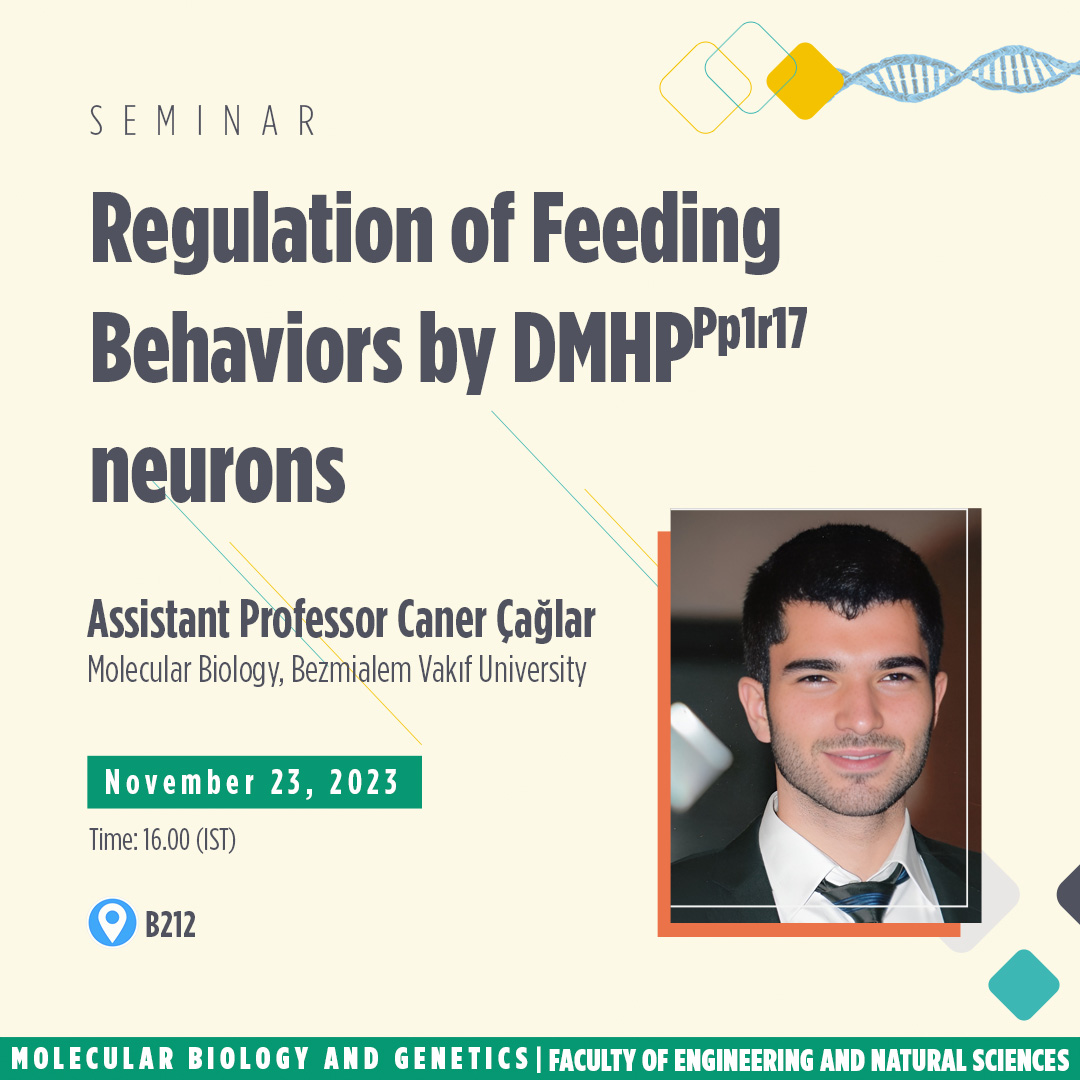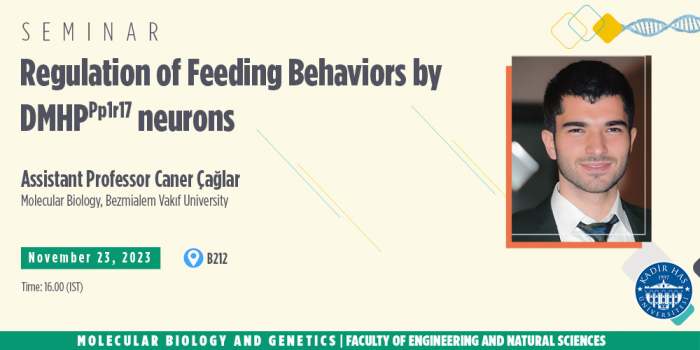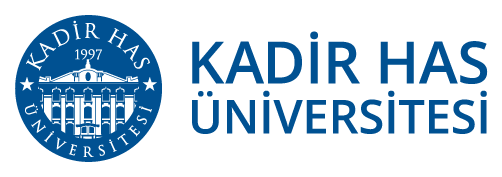
Moleküler Biyoloji ve Genetik Seminerleri: Dr. Öğr. Üyesi Caner Çağlar

Moleküler Biyoloji ve Genetik Bölümümüzün organize ettiği seminer serisinin yeni konuğu, Dr. Öğr. Üyesi Caner Çağlar (Bezmialem Vakıf Üniversitesi) olacak.
Dr. Çağlar’ın “Regulation of Feeding Behaviors by DMHPpp1r17 Neurons” başlıklı konuşmasını 23 Kasım Perşembe 16.00-17.00 arasında B-212’de takip edebilirsiniz.
Özet: Leptin deficient ob/ob mice eat excessively and their food intake is considerably suppressed by leptin injection. Leptin exerts its effects in part by modulating the activity of AGRP and POMC neurons in the arcuate nucleus as well as other brain regions. In order to identify novel sites of leptin action, we used the phosphotrap method to molecularly profile leptin responsive neurons in the hypothalamus and brain stem. In addition to identifying several known and novel neural populations that are responsible for mediating leptin`s effect on food intake, we also found that neurons in the Dorsomedial Hypothalamus (DMH) expressing Ppp1r17 are activated in ob/ob mice but do not express leptin receptor that are indirectly suppressed by leptin treatment. While these data initially suggested that these neurons would activate food intake, we in fact observed the opposite. Chemogenetic excitation of Ppp1r17 neurons decreased food intake and body weight in ob/ob mice while chemogenetic inhibition of Ppp1r17 neurons increased food intake and body weight. Similarly, in a scheduled feeding protocol that elicits Food Anticipatory Activity (FAA), mice ate more when Ppp1r17 neurons were inhibited and less when they were activated without altering food anticipatory activity, body temperature and oxygen consumption. These data suggest that Ppp1r17 neurons in DMH play a key role in restricting excessive food intake and leptin suppresses their activity indirectly by reducing food intake. These results reveal that pathways that increase food intake can activate neural populations that can restrain food intake as a compensatory mechanism. This finding has potential implications for an understanding of binge eating and other nutritional disorders.
Konuşmacı Hakkında: Dr. Caner Çağlar holds the position of Assistant Professor in the field of Molecular Biology at Bezmialem Vakıf University. He holds a Bachelor of Science degree from Bilkent University, with a specialization in the Molecular Biology and Genetics department. Following the successful completion of his undergraduate studies, Dr. Çağlar embarked on an academic journey that led him to prestigious institutions of higher learning.
Upon obtaining his undergraduate degree, he undertook the role of a postgraduate scholar at Yale University, gaining valuable research experience. Subsequently, he pursued his doctoral studies in Biological Sciences at The Rockefeller University. Throughout his academic pursuits, Dr. Çağlar engaged in collaborative efforts with esteemed researchers from renowned institutions such as Harvard, Princeton, Yale, and The Rockefeller University. This collective research has resulted in the publication of numerous high-impact articles in distinguished journals, including Cell, Neuron, American Journal of Human Genetics, and the Proceedings of the National Academy of Sciences (PNAS).
Dr. Çağlar’s multifaceted research endeavors encompass diverse areas of study, notably within the domains of neurobiology, metabolism, behavior, and genetics. His primary focus centers on elucidating the intricate neuronal mechanisms that govern behaviors related to food consumption. Currently, his research program employs state-of-the-art technologies in neuroscience and molecular biology to delineate the neuronal circuitry that becomes activated or inhibited during instances of binge eating.
